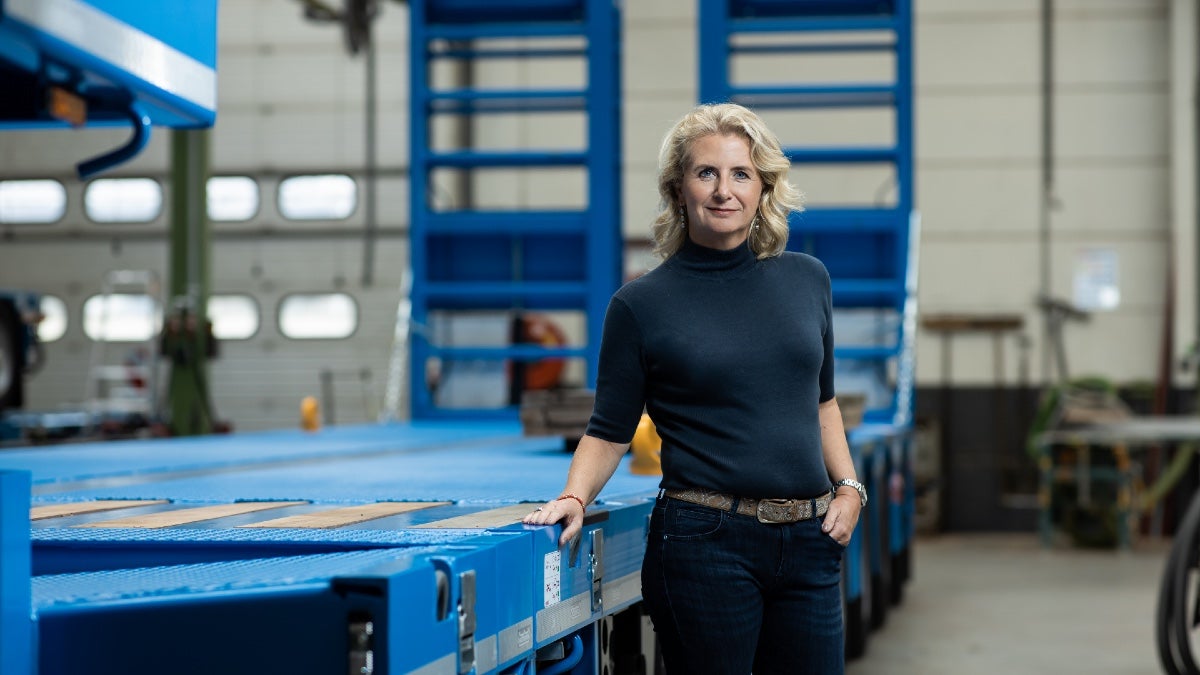Before buying a garment online, would you like to see how it looks on you first? VU alumni Ugnius Rimsa and Michael Musandu offer virtual models that customers can adjust to match their own likeness.
Tell us more about the importance of Lalaland, your start-up.
Ugnius (24): „Fashion websites usually display a garment on one model. It’s simply too expensive for fashion companies to use a range of models for each garment. This is difficult for customers, because clothes can look different on a body that is not the same as yours."
„However, customers can adjust our virtual models to suit their own likeness, not only with respect to build, but also age, size and skin colour. It’s also good for diversity: as the online fashion world is generally dominated by white models, this is a way of making it more diverse and inclusive."
That sounds great! Are there other benefits too?
„One of our main goals is to reduce the number of returns. In the Netherlands, as many as 44 percent of the garments ordered are returned. That’s 10 percent more than the global average. These garments often end up getting incinerated because it’s more expensive for the supplier to resell them. Not very environmentally friendly! By giving the customer a better idea of whether a garment fits and suits them, you can reduce the chance of a bad purchase and a return."
You both studied at VU Amsterdam – you in Business Analytics, and Michael in Computer Science. And you took a few units together, such as machine learning. Did the idea for Lalaland come up during one of these classes?
„No, we only thought of it later. After I graduated, I worked as a data scientist in the fashion industry. We regularly ran into delays due to photo shoots. One day, Michael called me. He was toying with the idea of a technology in which non-existent images could be created based on a database of existing images. He just didn’t know what he could use the technology for. I told him about the hassles at my previous job, and the idea for Lalaland came out of that conversation."
Has the pandemic increased Lalaland’s value?
„COVID-19 has definitely impacted us in a positive way. We’d just started Lalaland when the pandemic began, and now we have 19 employees. A number of fashion brands found their way to us because their photo shoots couldn’t go ahead, or had to be done differently. Along with Europe, we’re now focusing on North America, and we count Wehkamp, Sapph and Stieglitz among our clients."
When it comes to the idea of ‘deep fakes’, do you ever receive criticism about creating fake people?
„We’ve never received that criticism before, but we have thought about it. Naturally, our technology can be used for both positive and negative purposes. It goes without saying that we’re on the good side, but it’s definitely still a technology with two facets. The step required for using our image creation software in video software is quite substantial, however."
You will both be giving a masterclass on entrepreneurship in VU’s ‘The Boardroom’ programme. What lesson would you like to teach early entrepreneurs?
„That the idea of having to go ‘all in’ right away is a misconception. You can if you want to, but it’s not necessary. You can also get started while studying or working, and spend evenings and weekends developing your own project. Even if it’s just 10 percent of your time, you can work up to becoming an entrepreneur gradually. Personally, I was working for a start-up while I was setting up Lalaland, which meant I could immediately apply the things I was learning from my job. There’s more than one way to achieve your goal, so don’t get too focused on following a particular route!"








